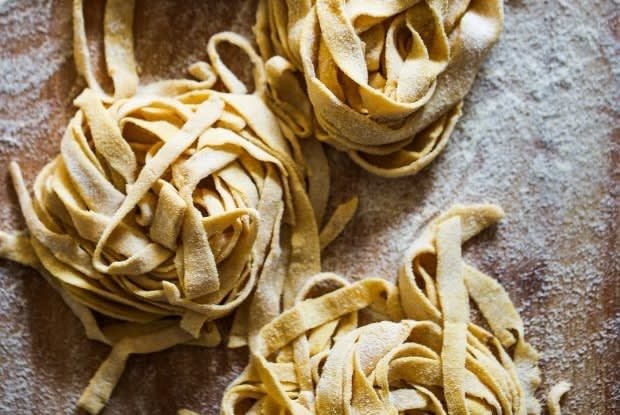Table of Contents
I. Goals of a Healthy Gout Diet
Gout is a painful arthritic condition that is becoming more and more common in the United States. Around four percent of the American population is affected by gout. That’s over eight million people.
This disease is not deadly but can significantly impact your quality of life. If you have gout, you can expect severe attacks of pain, swelling, redness, and tenderness in one or more joints. The big toe is typically affected first, but it may spread to other joints over time.
Gout is often chronic, but there are several medications available to help manage symptoms. Your doctor may prescribe medications like colchicine or indomethacin to reduce pain and future flare-ups. Prescription drugs are helpful, but there are several things you can do in your everyday life to improve your gout. Read on to learn more about foods that may exacerbate gout symptoms. [1]
Gout occurs slowly over time, so it may take a while to change the habits that have lead to its development. Your doctor will likely advise you to curb any unhealthy diet habits to improve your gout symptoms. If you want to reduce the frequency of gout flare-ups, you should achieve a healthy weight and avoid foods high in purines. Purines are chemical compounds that form uric acid when metabolized. Excess uric acid in the bloodstream can form crystals on the joints, leading to joint pain and gout attacks. It may be impossible to avoid all high-purine foods, but it is in your best interest to avoid as many as possible. [2] Certain meats are more likely to increase your risk of gout. These meats include glandular or organ meats such as sweetbreads, liver, and kidneys. If you eat a lot of red meat, you may want to switch to leaner cuts, like chicken or turkey. Venison, beef, and bison are three types of meat you may want to avoid because they contain a high amount of purines. Seafood is generally considered a healthy meat alternative, but some types of seafood have high levels of purines. Anchovies, shellfish, and sardines are high-purine seafood and may increase your risk of gout. Fish can be a part of a gout-friendly diet, so talk to your doctor to determine which seafood is right for you. [3] Research has found that consuming beer and distilled liquor increases uric acid in the body. Alcohol also increases the metabolism of nucleotides, which are additional sources of purines. On top of all that, alcohol also affects the rate of uric acid secretion from the body, further increasing uric acid concentration in the bloodstream. Beer is the biggest culprit of high uric acid levels, especially for men who consume more than 12 drinks a week. Not every person who drinks beer or alcohol will experience gout, but there is a connection if you possess other gout risk factors. One study of 500 participants found that 14.18 percent of the participants stated that alcohol intake triggered their gout attacks. [4] Consuming large amounts of sugar is not good for any balanced diet. Excess sugar is related to many health conditions like obesity, heart disease, and diabetes. Fructose is the type of sugar linked to gout. Fructose is a natural sugar that is found in honey and fruit. Artificial fructose is made from corn (high fructose corn syrup). Purines are released when fructose is broken down in the body. Research has found that the rate of gout is 74 percent higher in women who drink at least one can of sugary soda a day. If you want to limit your fructose consumption, avoid fruit juices and added sugars such as honey and agave nectar. [5] It may seem simple to avoid adding sugars to your diet, but most sugar consumption occurs without us realizing it. Refined carbohydrates or simple carbs are present all around us and may increase your risk of gout. These types of foods have little fiber, vitamins, and minerals. Because of this, they are digested quickly and lead to rapid spikes in blood sugar. Refined carbs are the opposite of “whole foods,” which are high in carbs but nutritious. Simple carbohydrates are a huge part of the diet in many countries like the United States. If you are at risk of gout or diabetes, you should avoid the following foods: Improving your gout condition takes time, and you may need to educate yourself on the hidden sugars and fats in your everyday foods. Along with a consistent medication regime of colchicine or indomethacin, a low-purine diet can significantly reduce your gout symptoms. Talk to your doctor to learn more. The content in this article is intended for informational purposes only. This website does not provide medical advice. In all circumstances, you should always seek the advice of your physician and/or other qualified health professionals(s) for drug, medical condition, or treatment advice. The content provided on this website is not a substitute for professional medical advice, diagnosis, or treatment.
Goals of a Healthy Gout Diet
Red Meat & Organ Meats
Alcohol

Sugary Foods
Refined Carbohydrates

